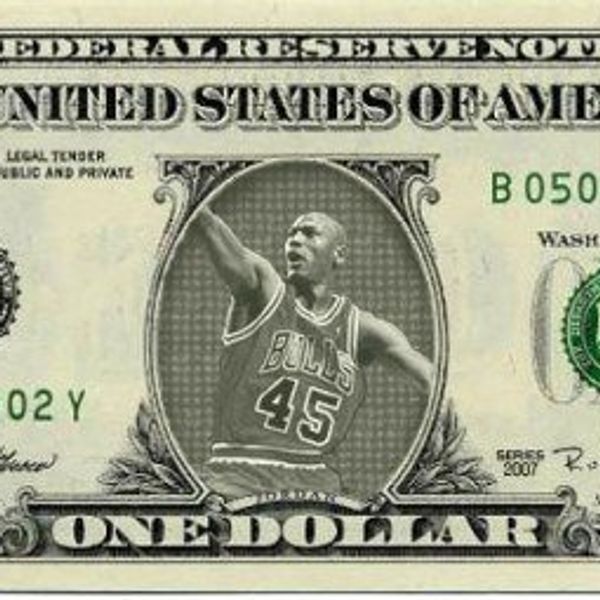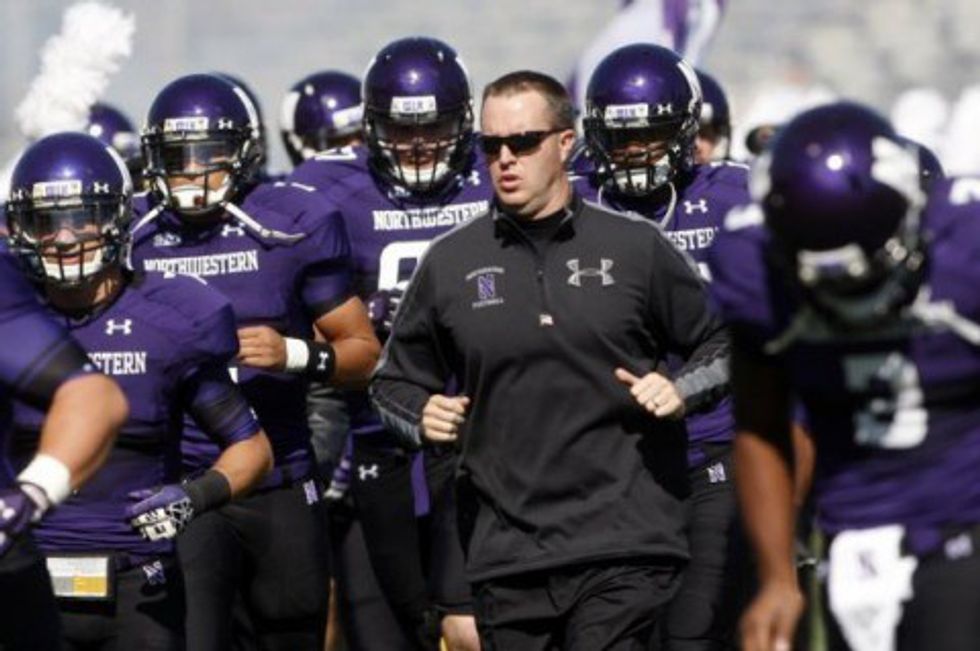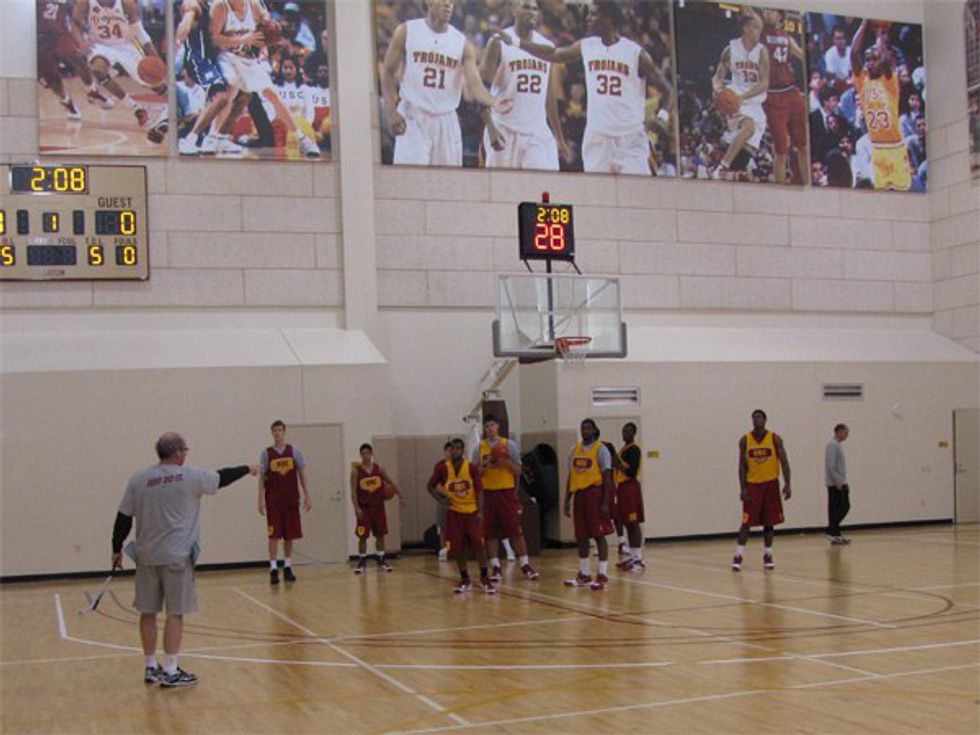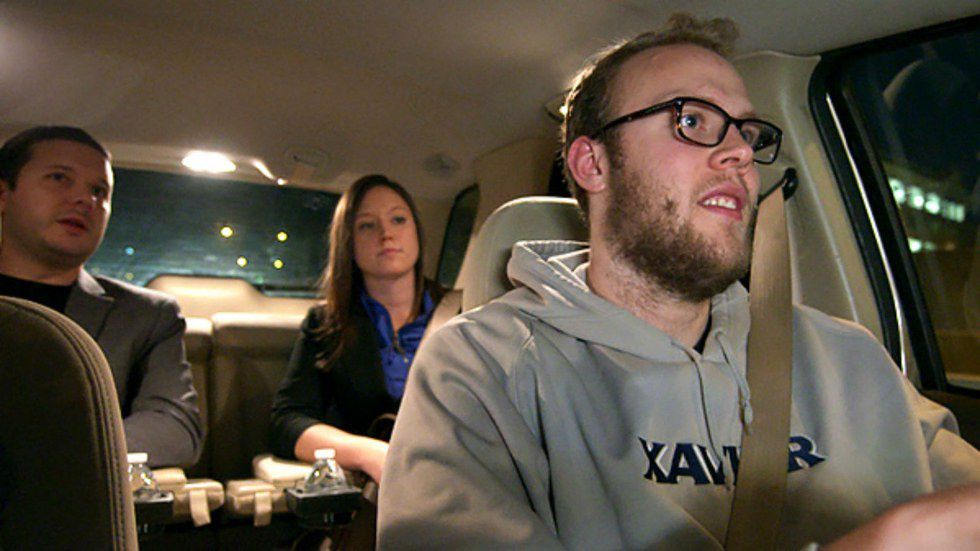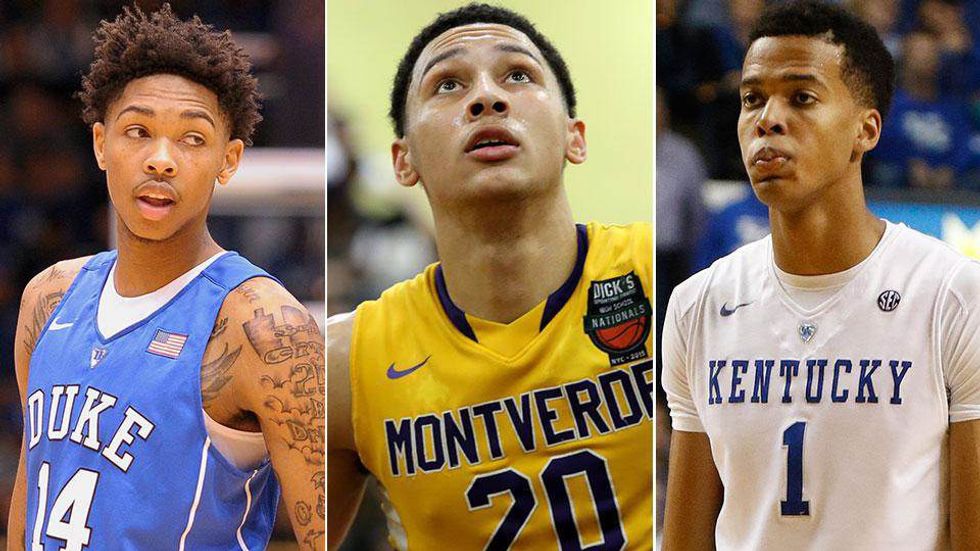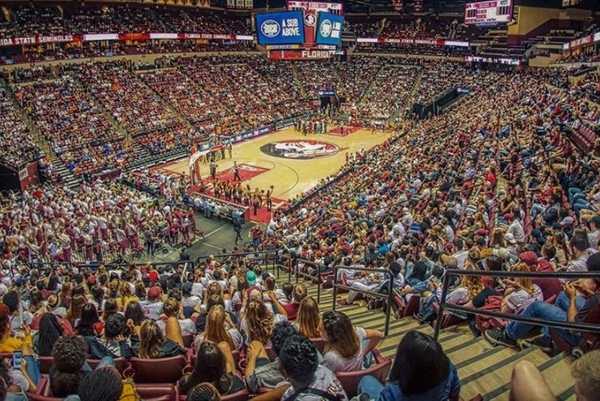In 2014, the Northwestern Football team tried, and failed to unionize and take steps towards being recognized as employees. They, like many others in the college sports world, argued that they deserve to be paid for all the benefits the NCAA and their individual colleges and universities receive from their participation in college athletics.
Along with the many commentators and former athletes, I too believe the time has come for our college athletes to be paid. While it would be nice for all athletes to be paid, realistically speaking this argument is meant for the “big two” of college sports – football and basketball. Here are some reasons why anyone who opposes the idea of paying these so-called “Student athletes” probably does not understand how ridiculous the big picture really is.
1. On average, college athletes spend over 40 hours a week dedicated to their sport
While the NCAA has a “4 and 20” rule that restricts, in theory, the work day of an athlete to no more than 4 hours a day and 20 hours a week, it does not include pre-season workouts and stipulates that game-day activities count as three hours, regardless of how long they may actually take. In addition, there are voluntary practices and workouts that players may feel compelled to participate in so as to stay in peak physical condition. These voluntary activities do not count towards the 4 and 20 rule. When surveyed, the average Division I football player reported spending 43.3 hours per week, in season on athletics-related activities.
That is already a full week for any adult with a career, but in addition to that, the athlete must also take classes. If a student has 10 hours of classes each week and puts in the recommended 4 hours of studying for each hour of class, then the athletes end up with 50 hours of purely academic work. Add that to the 43 hours of sports and there is not much time for anything else. It’s like an average person working 2 full-time jobs and a part-time job on the weekends (since, like all college students, athletes need money to spend on things too) just to stay in school and keep their scholarship while hopefully paying a few bills on the side.
2. A Full-ride Scholarship does not cover all the costs of going to college
While the NCAA is quick to cite the fact that paying for tuition, room and board, other miscellaneous fees and meal plans, there are many other costs for a college student.
First and foremost if the athlete has practice that goes until after the dining halls are closed, his meal plan is pointless. Keep in mind the free meal plan only came into effect in 2014 after University of Connecticut basketball player Shabazz Napier mentioned going to bed hungry during interviews before the college basketball national championship game. Still, people need to eat, especially athletes fresh out of practice. The problem is that since they already have an insane schedule both compared to other students who don’t play sports and adults with careers and 9-to-5 jobs, there is not much time to have a part-time job. Some athletes like Xavier’s Matt Stainbrook, the man in the picture at the head of this section, took jobs outside of the traditional work day. Stainbrook was an uber driver while juggling his already busy schedule and would often work late nights after practice or games.
3. The NCAA is an $11 Billion dollar industry and only the athletes are restricted in their earnings
A common criticism of paying players is the comparison to interns. While interns do a lot of work in exchange for job experience at the cost of no pay, student-athletes also receive better coaching and a free education for the same cost. The issue, however, is the difference in production. The NCAA is an $11 billion industry. Where does that money come from? TV deals and selling tickets to see college kids playing sports. No one is going to a Duke Basketball game only to watch Head Coach Mike Krzyzewski yell at his players. No one goes to an Alabama football game to stare at Nick Saban from the nosebleed seats. People fill stadiums and arenas, sometimes paying an arm and a leg for tickets to see the players. Yet the players are the only ones getting limits on how much they can profit from their work.
Think about it this way: we are told that since the players receive free tuition, they shouldn’t get anything else. Let’s ignore numbers for a minute and compare it to another student who is not an athlete. If a music major receives a full ride scholarship to a school, he does not have to quit his band. He can go and play gigs on the weekend and charge money. They are not told that if they receive money for their performance they will lose their scholarship, yet athletes are told the exact opposite.
It gets even worse when schools sell jerseys with players’ numbers on them and the players do not see a dime. Think about it at the pro level: Why would I prefer to have a Chicago Bulls jersey that has #23 on it instead of just a blank jersey with no number? It’s not because I’m a huge fan of the number 23 and an equally large fan of the Bulls and I want to show my enthusiasm for both. The fact is that since the great Michael Jordan wore number 23, it is more valuable to me. I’m not willing to pay more simply because of the number, but instead for Michael Jordan’s image.
Outside of sport we see this too. We are told to buy Smart Water because Jennifer Aniston drinks it, the Capital One Venture Card because Alec Baldwin has one or a white t-shirt for $120 because Kanye West made it. The difference between celebrity endorsements and buying jerseys of athletes is that the athletes actually did something to make that valuable. For all we know, Jennifer Aniston drinks tap water, but Smart Water is still going to sell regardless. If an athlete does not play well then his jersey will not sell. Players are the only ones in control of the value of their jerseys, yet they receive no reward for that effort, it is all picked up by the NCAA and the universities.
As we stated earlier, college sports bring the NCAA $11 billion, and Athletic Directors and Coaches are paid very handsomely, yet the athletes, the product that is being sold, do not see a dime.
4. Good players would stay in school longer
“But it will ruin the integrity of the sport” critics are quick to yell. No it will not. That is an absolute load of crap. Usually, the ones yelling about the integrity of the sport are also the ones who complain when superstars in college basketball leave after playing their freshman year. In all honesty, it’s ridiculous to complain about that because it is basic economics. The opportunity cost for a potential first round draft pick is too high if he stays in school. Sure he may get a little better, but he could also get injured. Plus, many athletes only made it to college because of athletic scholarships and their families back home are poor. Why should a guaranteed first round pick pass up making millions of dollars just to stay in school? The 2015-2016 NBA first overall pick, Karl-Anthony Towns, is guaranteed to make $15 million over his first 3 years in the league.
Of course schools can’t afford to pay their players $5 million a year, but they can pay their players something and that will even the scales when it comes time to decide whether or not to go pro. The superstars may still leave after a year, but players who desperately need money for their families can forgo the NBA for a few more years since they will actually be drawing a salary of some sort. Paying the players would actually provide adequate reward for the risks inherent in sports such as injuries and would increase the average time spent in college by athletes, thus raising the overall level of competition
In short, I think it is absolutely immoral to restrict the earnings of one class of people, in this case the players, while doing nothing for all the others involved. It would be an entirely different conversation if we were talking about a net-worth of the NCAA being much smaller, but due to TV deals to see the players play, it is something that must be considered.


